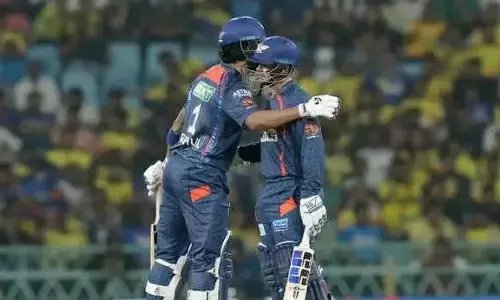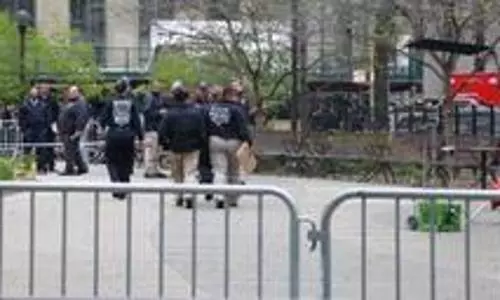
India should say 'responsibly' than 'no first use': Parrikar on nuclear doctrine
text_fieldsNew Delhi: Defence Minister Manohar Parrikar on Thursday said India should say it will use its nuclear powers "responsibly" instead of stressing on "no first use", but stressed that this was his personal view.
Speaking at the release of a book "The New Arthashastra: A Security Strategy for India", edited by defence analyst Brig Gurmeet Kanwal (retd.), he also said that he used to get threats from his counterpart in a "neighbouring country" every few days, but has got none since the surgical strike.
Talking about India's nuclear doctrine, Parrikar questioned why it is just said that India is for no first use, saying: "Why lot of people say that India is for 'not first use;... Why should I bind myself.
"I should say I am a responsible nuclear power and I will not use it irresponsibly," he said.
The minister himself, as well as Defence Ministry Spokesperson Nitin Wakankar clarified that the comments were his personal opinion, and did not reflect government policy.
"It is not change in any government policy, I am also an individual. As an individual, I get this feeling sometimes. Why should I say I am not going to use it first. I am not saying you have to use it first just because you don't decide that you don't use it," said Parrikar.
"I used to get threats from the defence minister of a neighbouring country every four-five days that they are going to use tactical nuclear weapons. From the day surgical strike happened, no threat has come," he said in an obvious reference to Pakistan but without naming the country.A
The surgical strike was carried out by India in the night between September 28 and 29 on terror launch pads across the Line of Control in Jammu and Kashmir.
"When they realised we can do something which is not well defined, ultimately the written defence strategy does not mean you have to follow it. It should be your guideline," said Parrikar.
"The concept which said 'Be unpredictable' has to be there. That is our strategy as well," he added.
Elaborating, he added that a written down strategy will give out the surprise element.
"If a written-down strategy exists or you take a stand on a nuclear aspect, I think you're actually giving away your strength....
"I am very clear that your strategy also has to be less predictable, then it will carry weightage."
India first adopted a "No first use" policy after its second nuclear tests, Pokhran-II, in 1998.
In August 1999, the Indian government released a draft of the doctrine which asserts that nuclear weapons are solely for deterrence and that India will pursue a policy of "retaliation only".
The document also maintains that India "will not be the first to initiate a nuclear first strike, but will respond with punitive retaliation should deterrence fail" and that decisions to authorise the use of nuclear weapons would be made by the Prime Minister or his "designated successor(s)".
Parrikar's comments come as tension along India-Pakistan border continues with more than 100 ceasefire violations since the "surgical strikes" in response to the attack on an Army camp in Uri of Jammu and Kashmir on September 18, which left 19 soldiers dead.
The Ruling Bharatiya Janata Party's election manifesto in the 2014 Lok Sabha election mentioned revision of nuclear doctrine to make it more relevant.
"Study in detail India's nuclear doctrine, and revise and update it, to make it relevant to challenges of current times" and "Maintain a credible minimum deterrent that is in tune with changing geostatic realities" were among the manifesto promises under the heading "Independent Strategic Nuclear Programme".






















